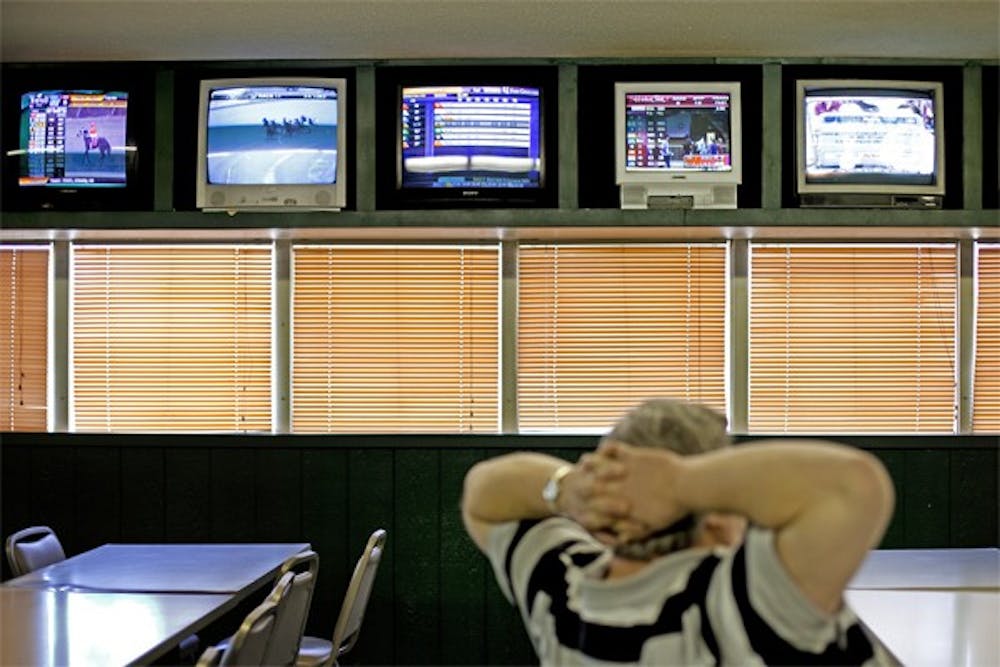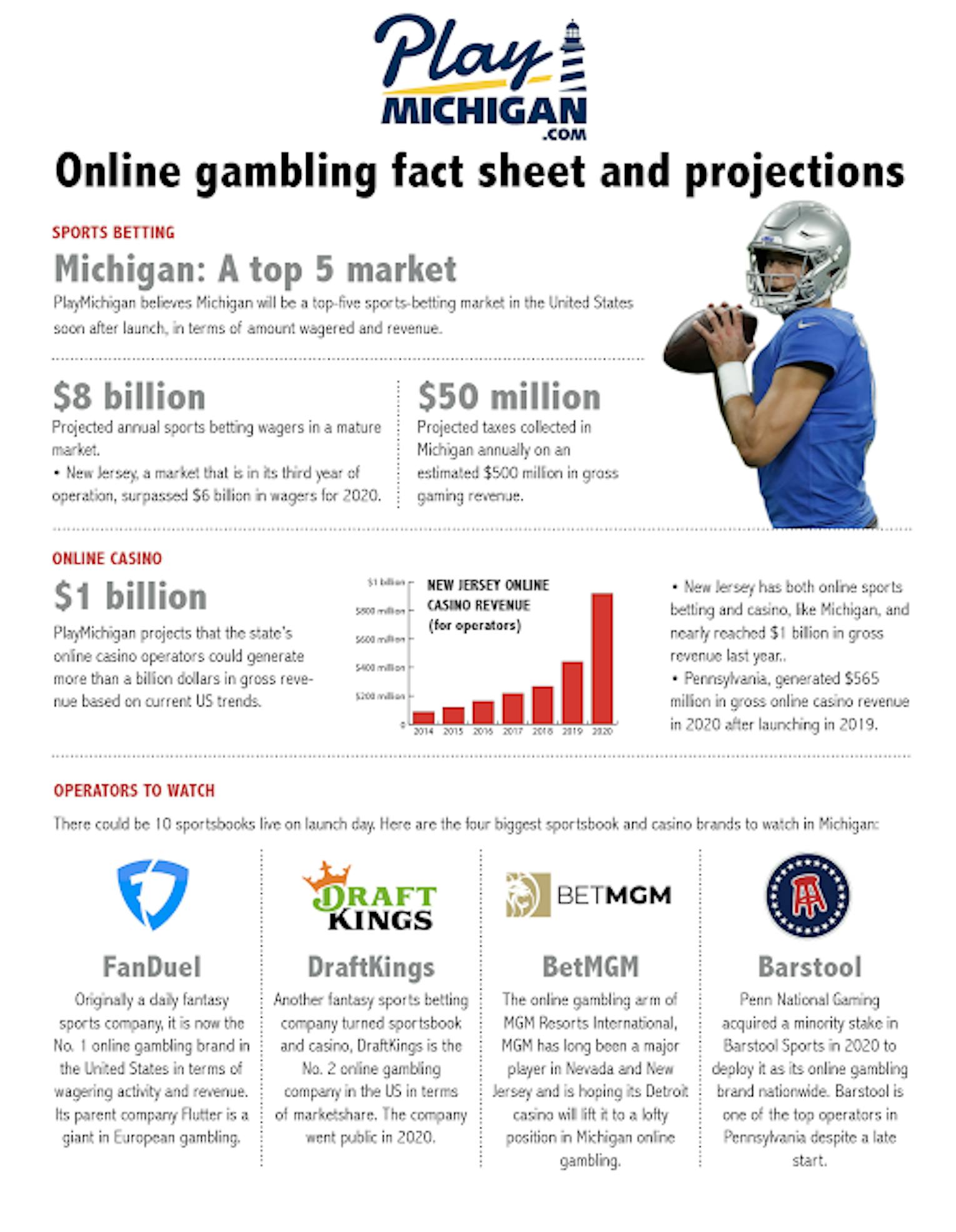Online sports betting, casino gaming launches Friday

After nearly three years of waiting, Michigan residents can bet on sports and play their favorite casino games from the comfort of their own homes.
The Michigan Gaming Control Board has authorized 10 operators to begin online sports betting and online gaming at noon on Jan. 22.
“The Michigan Gaming Control Board and the state’s commercial and tribal casinos will begin a new era Jan. 22 with the launch of regulated online gaming and sports betting,” said Richard S. Kalm, MGCB executive director in a press release on Tuesday. “Michigan residents love sports and, judging by inquiries we’ve received, eagerly anticipate using mobile devices to place bets through the commercial and tribal casinos. Online gaming and sports betting will provide the casinos with new ways to engage with customers while the state and local communities will benefit from taxes and payments on wagering revenue.”
Each major platform provider, such as DraftKings and FanDuel, could pair with one of the states 12 tribes or three commercial casinos. FanDuel has paired with Motor City Casino, Barstool Bets partnered with Greektown Casino and DraftKings has partnered with Bay Mills Casino in Brimley.
Soaring Eagle Casino and Resort, Michigan’s largest casino, will be the last of Michigan’s 15 casino operators to announce a technology or operations partner for online. Soaring Eagle did not respond for comment on the matter.
Central Michigan University alumnus and gambling analyst Matt Schoch says online betting and gambling has been a long time coming for Michigan.
“I think that sports fans in particular are really excited for the online component of sports betting,” Schoch said. “This will be a nice way for folks to add some entertainment to their sports viewing.”
According to PlayMichigan, Michigan is anticipated to be a top 5 sports betting market once launched. The site is also projecting $8 billion in wagers and $50 million in taxes collected on an estimated $500 million in gross gaming revenue.

Projections graphic (image provided by PlayMichigan.com)
Based on current US trends, the site project online casino operators could generate more than $1 billion in gross revenue.
After a plan to legalize mobile betting and gambling was axed at the last minute by then-Gov. Rick Snyder in 2018, now Gov. Gretchen Whitmer signed both pieces of legislation into law to make online casinos, online poker and online sports betting legal for Michiganders in December 2019.
Only existing Michigan casinos, including the three Detroit commercial and 23 tribal casinos across the state, are authorized to apply for a sports betting license.
Retail betting made its debut in Michigan in March 2020 and has been steadily expanding since. Casino operators were poised to have their sports books operational prior to the 2020 NCAA men’s basketball Tournament. Because of the repercussions of the COVID-19 pandemic and resulting lockdown, plans for sportsbooks were placed on hold when all of Michigan’s 26 casinos were forced to close on March 16.
The tax and payment rate for online sports betting is currently set at 8.4 percent. The tax and payment rate for internet gaming ranges from about 20 percent to 28 percent. Detroit’s three casinos and Michigan’s 23 tribal casinos will see differences in tax allocations.
For Detroit’s big three casinos, Motor City, Greektown and MGM Grand, 65 percent will go to the state Internet Sports Betting Fund or the state Internet Gaming Fund, 30 percent will be allocated to the city of Detroit and 5 percent to the Michigan Agriculture Equine Industry Development Fund (up to $3 million per year from each tax source). A hold-harmless provision will help the city recoup lost gaming tax revenue if the city of Detroit collects less than $183 million in a fiscal year for online gambling.
For tribal operators, 90 percent of tax allocations will go to the Internet Sports Betting Fund and 10 percent will go to the Michigan Strategic Fund. Internet Gaming will allocate 70 percent to the state Internet Gaming Fund, 20 percent will be for local jurisdiction governing body for services, and 10 percent will be sent to the Michigan Strategic Fund.
Online players must be 21 years of age. Players under the age of 21 may play inside select casinos throughout the state. Soaring Eagle is one that allows players in the casino at 18-years-old.
Assistance for gambling problems is available through the Michigan Problem Gambling Helpline at (800) 270-7117.






